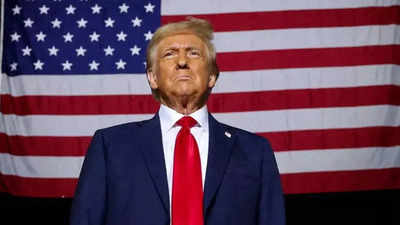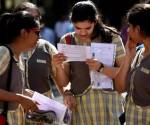Republican crackdown on ‘woke books’ hits overdrive: A move to shield minds or silence thoughts? – The Times of India

The American battle over books has long been known and widely discussed. However, it has recently taken an unprecedented turn, reaching a fever pitch and transitioning from local skirmishes to a sweeping federal offensive. The Trump administration’s recent directive to scrutinize school libraries under the Department of Defense Education Activity (DoDEA) marks a profound escalation. The move led to a temporary suspension of access to all library books in approximately 160 schools serving US military families, purportedly to assess compliance with bans on “gender ideology” and “discriminatory equity ideology topics.”
The controversy transcended borders when acclaimed actor and author Julianne Moore discovered that her children’s book, Freckleface Strawberry, was among those flagged for review. Expressing her disbelief, Moore took to social media, denouncing the censorship as an ideological purge disguised as educational oversight.
History repeating itself: The long shadow of censorship
Tracing America’s history would provide a window into the book banning being a persistent specter in the past. In the early 20th century, Ulysses by James Joyce and The Grapes of Wrath by John Steinbeck were blacklisted under the garb of moral decency. McCarthy, the Republican US Senator from Wisconsin, who served from 1947 to 1957, presided over an era in which ideological censorship intensified, targeting books deemed sympathetic to communism. By the 1980s, titles addressing race and sexuality—such as Alice Walker’s The Color Purple—were met with fierce opposition.
However, the present crisis is more alarming than ever as previously the transition was encountered from the grassroots level whereas contrarily this time it is driven by government-enforced mandates. While past challenges to books were profoundly restricted to local school boards and parental complaints, today’s checks are orchestrated from the highest levels of power. The Pentagon engagement refers to a newfound willingness to institutionalise ideological censorship on a national level.
According to PEN America, a non-profit organization dedicated to defending free expression, more than 10,000 book bans occurred in public schools during the 2023-2024 academic year, disproportionately targeting works that cater to systemic racism, gender identity, and social justice.
Political figures driving the movement
Florida Governor Ron DeSantis has taken the centre stage in this crusade. Through legislative measures such as the Stop WOKE Act and the Parental Rights in Education Act—infamously dubbed the “Don’t Say Gay” law—DeSantis has aggressively pushed for restrictions on discussions surrounding race and gender. His administration has propelled the uproot of literary classics comprising Beloved and The Bluest Eye by Toni Morrison, Slaughterhouse-Five by Kurt Vonnegut, and The Handmaid’s Tale by Margaret Atwood.
Despite these movements, DeSantis and his camp contend that their actions do not constitute true censorship. They argue that restricting access to books within schools does not infringe upon free speech since the books remain available for private purchase. Nonetheless, critics claim that the logic is fundamentally fractured, school libraries serve as primary access points for students, especially those hailing from marginalised communities who may not have alternative access to these works.
The justification: Protecting students or controlling narratives?
Proponents of these book bans say that they are safeguarding children from inappropriate, divisive, or politically motivated material. They argue that literature catering to race, gender, identity, and social justice often perpetuates ideology rather than education, asserting that schools should focus on neutral, fact-based curricula rather than subjective interpretations of history and society.
However, the justification turns the spotlight on some pressing questions: Who determines what is “appropriate”? And is the elimination of books truly shielding children, or about ensuring that only a particular worldview is accessible to them?
The consequences: Restricting knowledge, shaping beliefs
Censorship, especially in educational institutions, has historically been a tool for dictating thought rather than safeguarding it. By uprooting books that explore racial injustice, LGBTQ+ identity, or historical inequities, lawmakers push students towards a mindset that does not foster a holistic view of the world. It robs them of a wider window to the world. When access to diverse perspectives is shackled, education transforms from fostering independent thought to reinforcing a singular, often politically motivated narrative.
Paradox of the Free Speech debate
The overwhelming irony in this debate is unpardonable. Those spearheading the charge against so-called “indoctrination” are, in effect commanding what can and cannot be learnt. The deliberate omission of certain perspectives, in itself is a form of indoctrination- one that curates reality to align with political objectives, rather than enabling students to participate with a broad spectrum of ideas and form their own opinions.
Legal precedent: A threat to Free Inquiry
The legal foundations of American educational freedom are in the crosshairs. The landmark Supreme Court case Island Trees School District v. Pico (1982) ruled that school boards cannot remove books from libraries simply because they find the content objectionable. The current wave of book bans directly undermines this precedent, jeopardizing the principle that libraries should be sanctuaries of intellectual exploration rather than ideological battlegrounds.
The creeping normalisation of these bans put forth concerns that restrictions will transcend beyond school classrooms to bookstores, and universities and spread their roots to broader cultural implications. By strategically wiping out educational freedom, policymakers risk nurturing a generation deprived of diverse perspectives and critical thinking skills.
A crossroads for American education
At its heart, the controversy over “woke books” is not merely about literature—it is about the soul of American education. Advocates of these bans argue that they are safeguarding children from harmful ideologies, but in the veil of it, they are domineering histories and narratives are permissible. The paradox is inescapable: the very individuals decrying indoctrination are themselves formulating an unprecedented effort to halt the exchange of ideas.
The United States now stands at a juncture. Will the nation uphold its commitment to intellectual freedom or succumb to a sanitised version of history, lacking complexity and nuance? The answer to this question will mould not only the future of American education but the ideological fabric of the nation itself.
















